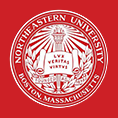Alan Harrison is an experienced business and intellectual property attorney serving clients throughout Connecticut. He represents small business owners, entrepreneurs, and investors in commercial transactions, business disputes, and intellectual property matters.
Alan’s practice includes contract drafting and negotiation, partnership and operating agreements, business formation and restructuring, and intellectual property protection. He has helped clients secure patents and trademarks in industries ranging from aerospace to entertainment.
He has also resolved commercial and IP disputes involving fraud, patent and trademark infringement, breach of contract, tortious interference, and embezzlement — frequently helping clients avoid costly litigation.
Before taking the bar, Alan was a Naval submarine officer and mechanical engineer. He holds a B.S. in Mechanical Engineering from Northeastern University and a J.D. from the University of Connecticut School of Law. He is admitted in Connecticut state and federal courts and before the U.S. Patent and Trademark Office.
- Business Law
- Business Contracts, Business Dissolution, Business Finance, Business Formation, Franchising, Mergers & Acquisitions, Partnership & Shareholder Disputes
- Intellectual Property
- Trademarks
- Trademark Litigation, Trademark Registration
- Patents
- Patent Appeals, Patent Prosecution
- Free Consultation
- Credit Cards Accepted
- Connecticut
-

- USPTO
-

- English: Spoken, Written
- Spanish: Spoken, Written
- Principal
- Sandollar
- - Current
- Attorney
- Whitmyer IP Group
- -
- Attorney
- Botos Churchill IP Law
- -
- Attorney
- Otterstedt, Ellenbogen & Kammer
- -
- Attorney
- McCormick, Paulding & Huber
- -
- Patent Agent
- McCormick, Paulding & Huber
- -
- University of Connecticut School of Law
- J.D. | Intellectual Property
- -
-

- Northeastern University
- B.S. | Mechanical Engineering
- -
- Honors: magna cum laude
-

- Honored Listee
- Marquis Who's Who
- Excellence for the Future - Contracts
- Center for Computer-Assisted Legal Instruction
- Top student in law school cohort.
- Excellence for the Future - Torts
- Center for Computer-Assisted Legal Instruction
- Top student in law school cohort.
- Connecticut State Bar
- Current
-

- Tau Beta Pi Alumni Chapter - Central Connecticut
- Board member
- Current
-

- Patents: Beyond the Basics – Current Risks and Opportunities (Part 1)
- Connecticut Innovations
- IP Considerations for Business Transitions, CBA Business Law Section, Elm City Club, New Haven CT
- Connecticut Bar Association
- One point five hour presentation about the significance of intellectual property in business transitions (start up, change of form, and purchase/sale).
- Patent Attorney
- United States Patent and Trademark Office
- Q. How many trademarks are needed for athletic wear and accessories logos and designs on Etsy?
- A: You might need a distinct trademark application for each logo, phrase, design variation. Each trademark application would have multiple "classes" at $350/class for the filing fee. Attorney charges for preparing a TM application vary significantly. Attorneys tend to discuss their fees off-line.
Before filing ANY trademark application you should be diligent in searching for existing similar uses or registrations of similar designs / logos / phrases. I just settled a TM infringement case where the defendant either did not do that, or did that and ignored the results. Not a hard case for my client to win.
- Q. How to register a patent for a wind turbine in the United States?
- A: For an electromechanical invention like a wind turbine, detailed drawings or detailed photographs of a prototype are very important for preparing the patent application. Generally, you would provide your drawings and notes to a patent agent or patent attorney ("practitioner"), who would ask you questions to clarify details. You could then have the practitioner conduct a prior art search, which could inform which aspects of your invention the practitioner would draft claims. Claims define what is protected by a patent; in U.S. practice, the claims are the peripheral boundaries of protection. To be valid, a patent may not claim subject matter that would have been obvious in view of the ... Read More
- Q. How to handle a German law firm's copyright infringement demand?
- A: First, hire a lawyer who can carefully do the following plus more.
Your attorney probably would want to get a copy of the complainer's copyright registration for the allegedly infringed work. This could show who, if anyone, might own the right to sue people who duplicate the work.
Depending on the substance or existence of the copyright registration your lawyer then could respond to the demand letter.


